Speaker Series
Events
-
-
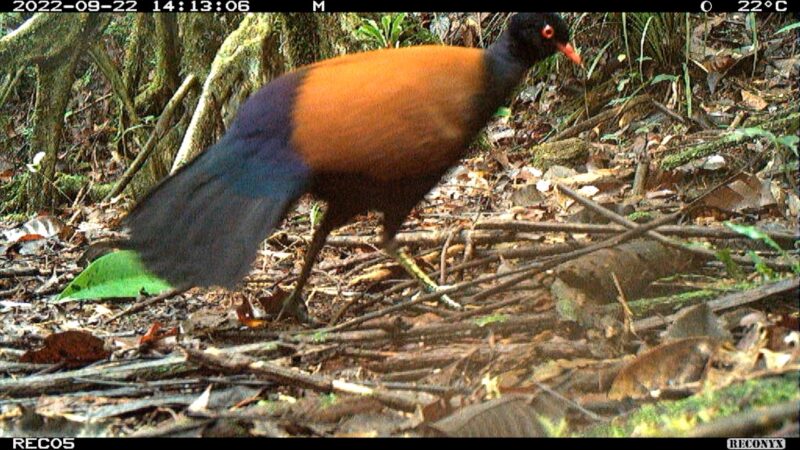
Re-discovering and Conserving the Black-Naped Pheasant-Pigeon, A Critically Endangered Species
Thursday, March 14, 2024
7:00 PM - 9:00 PM
Speaker: Jordan Boersma, Cornell Lab of Ornithology
Register HERE for this speaker seriesTopic:
Jordan will discuss the Black-naped Pheasant-Pigeon, a critically endangered species that hasn’t been documented by scientists since it was first described in 1882. In 2022, Jordan and his team embarked on an expedition to Fergusson Island, Papua New Guinea, and by leveraging the natural history knowledge of local hunters, was able to confirm the existence of this species, known locally as Auwo., thus demonstrating the invaluable role of Indigenous communities in ongoing efforts to relocate species lost to Western science. Plans are to build on the partnerships formed in 2022 to help conserve this elusive and culturally important species and continue to uncover natural history information about Auwo and other endemic taxa on Fergusson island. -
-
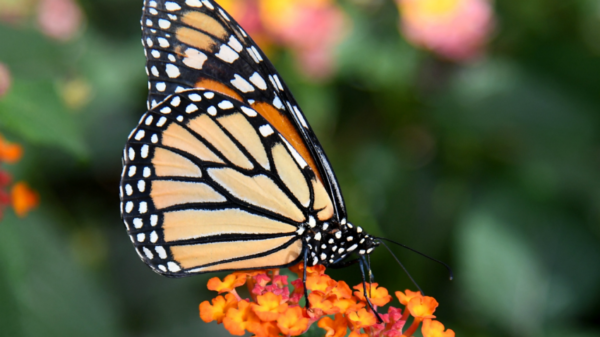
Monarch Butterfly
Thursday, April 11th
7:00 PM - 9:00 PM
Speaker: Mia Monroe and Ole Schell
Register HERE for this Speaker SeriesTopic:
Where have all the monarchs gone? Recent population trends and data on the Monarch Butterfly will be shared, as well as the good habitat work going on throughout Marin, especially Ole Schell's West Marin Monarch Sanctuary. Tips for how you can help will be offered, and a few controversies will be discussed, such as the role of eucalyptus and the dangers of tropical milkweed. Local photographers will be featured, and the work of the Marin Monarch Working Group will be a focus. -
-
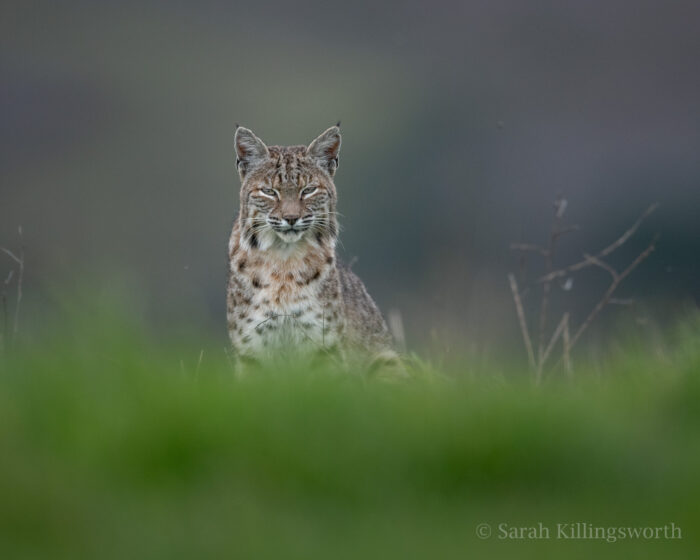
Ethical Wildlife Photography
Thursday, May 9, 2024
7:00pm - 9:00pm
Speaker: Sarah Killingsworth
Register HERE for this Speaker SeriesTopic:
Wildlife photography is an increasingly popular hobby, and time in nature observing wildlife can bring great joy to a photographer. Wildlife images can be powerful tools for conservation and education. At the same time, our time with wildlife impacts the individual animal and potentially the entire ecosystem. Using her own photos to highlight the concepts, Sarah will discuss photography ethics and etiquette - what they are, and why they matter. She will also share tips for photographing our natural world in ways that create impactful images. -
-
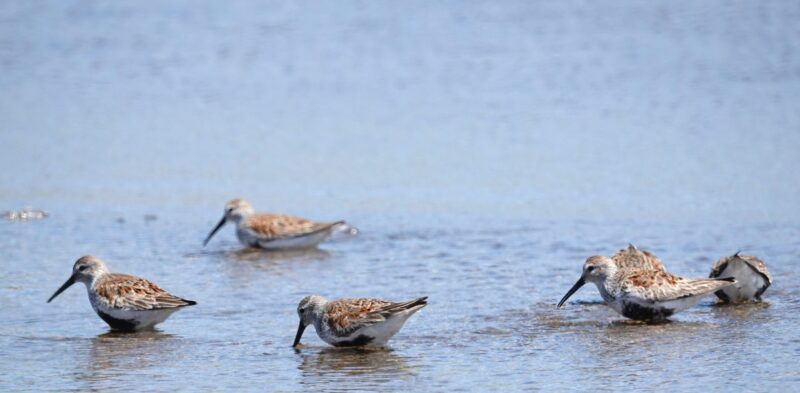
Marin’s Declining Shorebirds
Thursday, June 13, 2024
7:00pm - 9:00pm
Speaker: Nils Warnock
Register HERE for this Speaker SeriesTopic: Nils will talk about the status and trends of our North America shorebirds, with a focus on Pacific Flyway birds, particularly those that occur in Marin County. He will first discuss how shorebirds around the world and in the USA are doing and then talk about the results of a 30+ year winter shorebird monitoring program that Audubon Canyon Ranch has been conducting at Tomales Bay since 1989. Overall, numbers of wintering shorebirds on Tomales Bay have declined by over 65% over the past decades with Dunlin and Western Sandpipers among the biggest losers. Of the 14 taxa that ACR analyzed, 3 increased over the past 30 years, 1 stayed stable, and 11 species declined. Nils will discuss potential reasons why our shorebird populations have declined and what we might do about it.
-
-
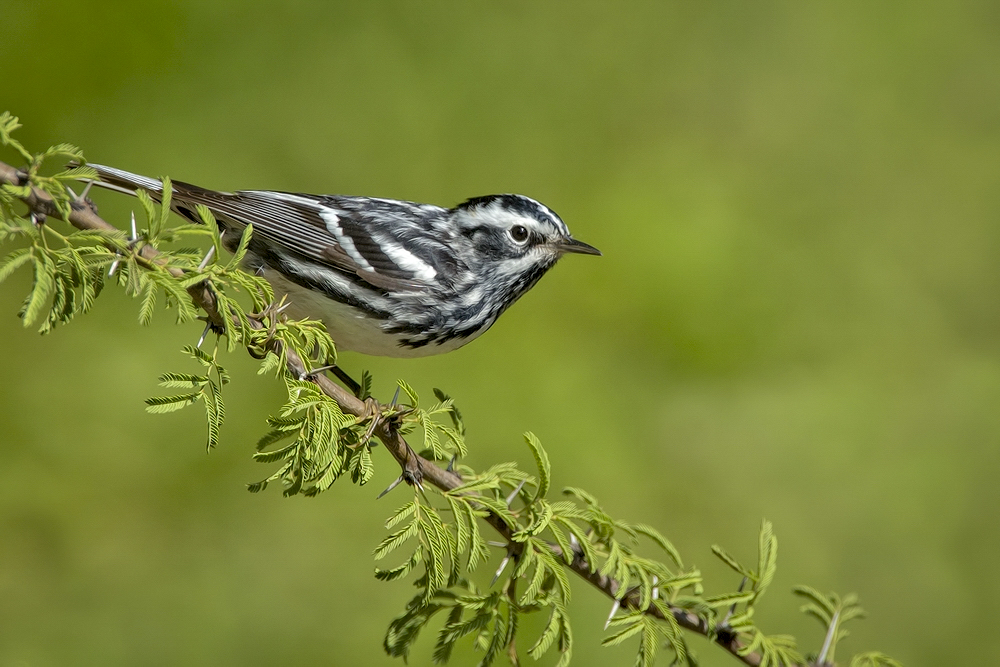
Vagrancy in Birds
Thursday, September 12th
7:00 PM - 9:00 PM
Speaker: Daniel Edelstein
More information will be announced closer to the event -
-
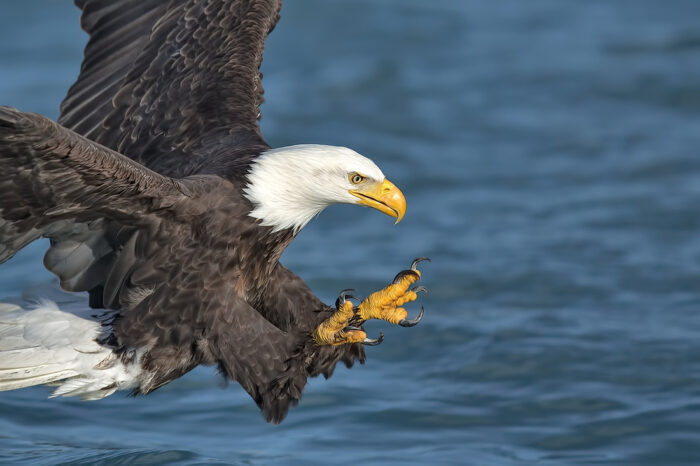
Raptor Quest: Chasing America’s Raptors
Thursday, October 10th
7:00 PM - 9:00 PM
Speaker: Scott Harris (Author & Photographer)
More information will be be announced closer to the event -
-
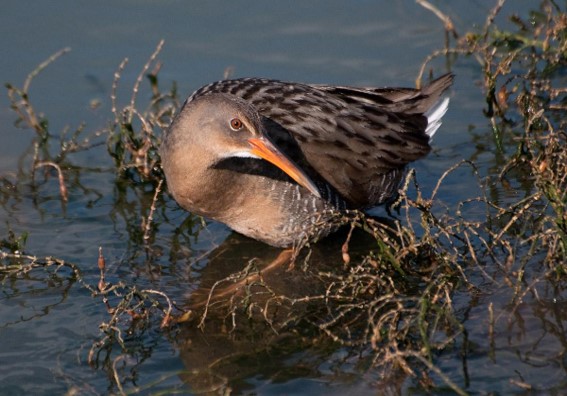
Christmas Bird Count
Thursday, November 14, 2024 7:00PM - 9:00PM Speaker: Josiah Clark Register HERE for this Speaker Series Topic: Josiah will speak to us about the upcoming Christmas Bird Count (CBC), the annual early-winter bird census conducted in December. Josiah will be discussing counting strategies and best practices for counting birds and covering areas on the count, including the virtues of the count circle, methods for preventing undercounting, tips on note taking and how good CBC coverage and data collecting habits set the stage for increasing numbers of detections and the accuracy of counts. He will also discuss strategies for promoting the CBC and attracting younger birders. Speaker Bio: Josiah Clark grew up steeped in the natural history of the Bay Area, where he has been birding for more than 20 years. Some of his defining birding experiences include observation and mist-netting on Southeast Farallon Island; extensive travel, study, and tour-leading in Latin America; and a 24-hour birding and bicycling marathon in Marin County during which he spotted 158 species. Josiah runs Habitat Potential, dedicated to interpreting, preserving, and creating productive wildlife habitats in the Bay Area human landscape. Next Speaker - Thursday, December 12, 2024 Colombia: South America’s Birding Mecca Speaker: Benny Jacobs-Schwartz
-
-
Colombia: South America’s Birding Mecca
Thursday, December 12, 2024 Speaker: Benny Jacobs-Schwartz More information coming soon!
-
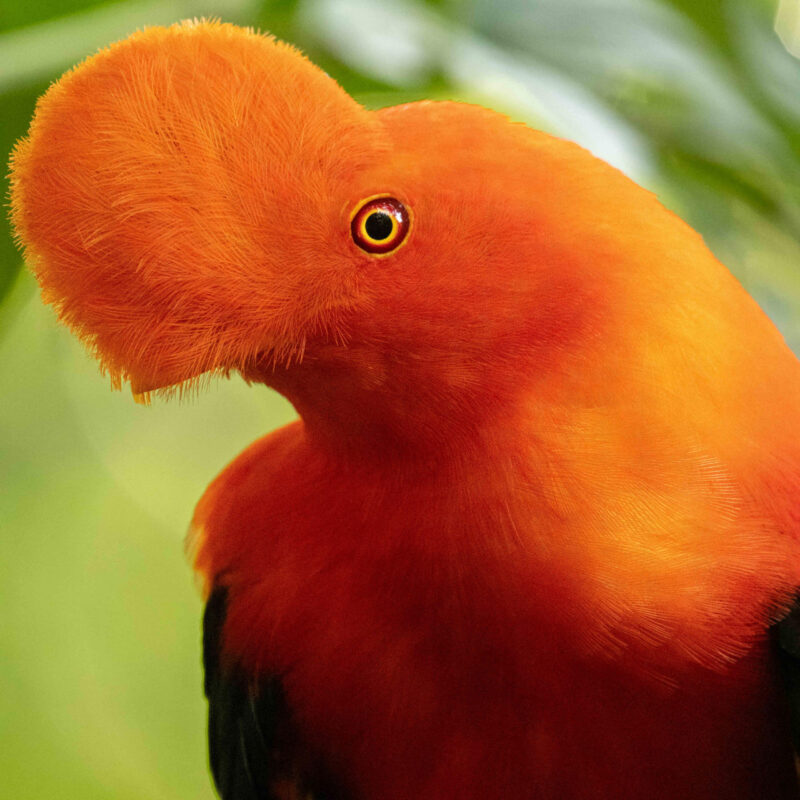
Colombia: South America’s Birding Capital
Thursday, December 12, 2024 7:00 pm - 9:00 pm Speaker; Benny Jacobs-Schwartz Register HERE for this Speaker Series Topic: Get ready for a dive into South America’s birdiest country! Together we’ll explore Colombia’s unique ecology, breathtaking scenery, and unparalleled avian diversity! Colombia holds the record with nearly 2,000 bird species and an impressive 80 endemics! During our time together, we’ll discuss what has given rise to such incredible diversity. Topics include the country’s five regions, how the Andes Mountain Range formed into three distinct cordilleras, the importance of the mighty Rio Magdalena, and national conservation successes. From sloth-eating Harpy Eagles to shy antpittas, and menageries of colorful tanagers and hummingbirds, Colombia’s astonishing diversity will leave you wanting more! Speaker Bio: Benny Isaac Jacobs-Schwartz owns and operates a bird-guiding business and lifestyle brand called BIRDS by BIJS (pronounced Bee-jus). With a background in biology, ecology, and outdoor education, Benny has worked for over 13 years as a naturalist guide, expedition trip leader, and international bird guide. Benny offers guided birding outings in Southern California and small-group birding tours to his favorite tropical locales like Costa Rica, Ecuador, and Colombia. Benny is a passionate educator and photographer, specializing in birds! Benny is active on social media where he creates fun, educational videos and posts to inspire others about the natural world with the goal of getting folks to put down their phones and pick up their Binos. Next Speaker: Migratory Shorebirds Thursday, January 9, 2025 Speaker: Matt Reiter (Point Blue)
-
-
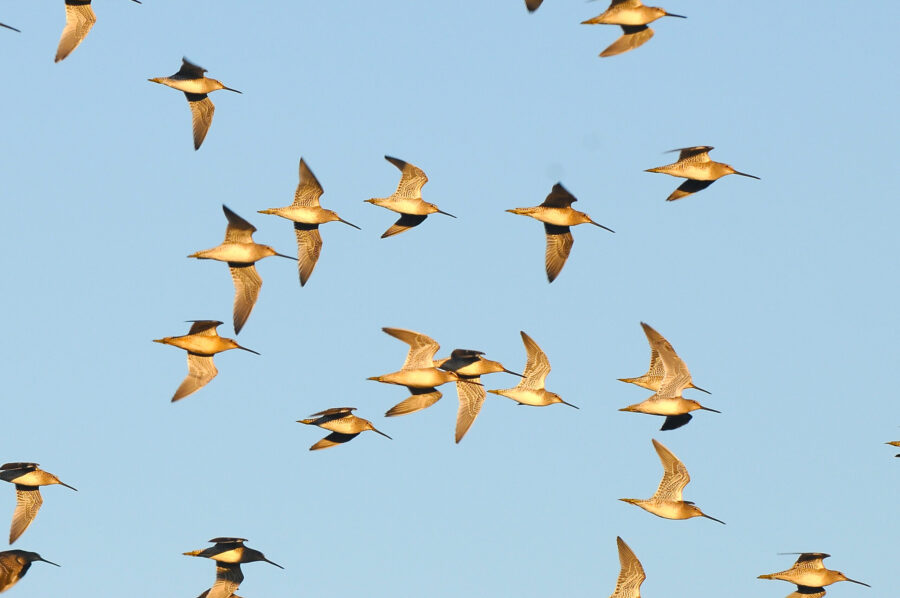
Migratory Shore Bird Project: Connecting Communities of the Americas through Research for Conservation
Thursday, January 9, 2025 7:00 - 9:00 PM Speaker: Matthew Reiter - Point Blue Conservation Science Register HERE for this Speaker Series Topic: Shorebirds are some of the most migratory species on the planet. However, their populations in the Western Hemisphere have been declining over the past 40 years. To better understand what is driving changes in shorebird populations and to turn data into knowledge and then conservation action, in 2011 Point Blue and partners launched a coordinated research, monitoring and conservation network for shorebirds in the Pacific Americas Flyway. The Migratory Shorebird Project is now a network of over 50 partners in 13 countries from Canada to Chile working together to study shorebirds and shorebird habitats and to implement conservation actions at scales that are relevant for these long-distance travelers. Speaker Bio: As a Research Director and quantitative ecologist with Point Blue Conservation Science, Dr. Matt Reiter’s work focuses on the ecology and conservation of migratory waterbirds and their wetland habitats in order to understand the impacts of threats such as habitat loss and climate change across broad migratory landscapes. Matt received an M.S. (2006) and Ph.D. (2009) in Wildlife Ecology from the University of Minnesota and has been at Point Blue since 2009. Next Speaker: Thursday, February 13, 2025 Bay Area Wildlife: An Irreverent Guide Speaker: Jeff Miller
-
-
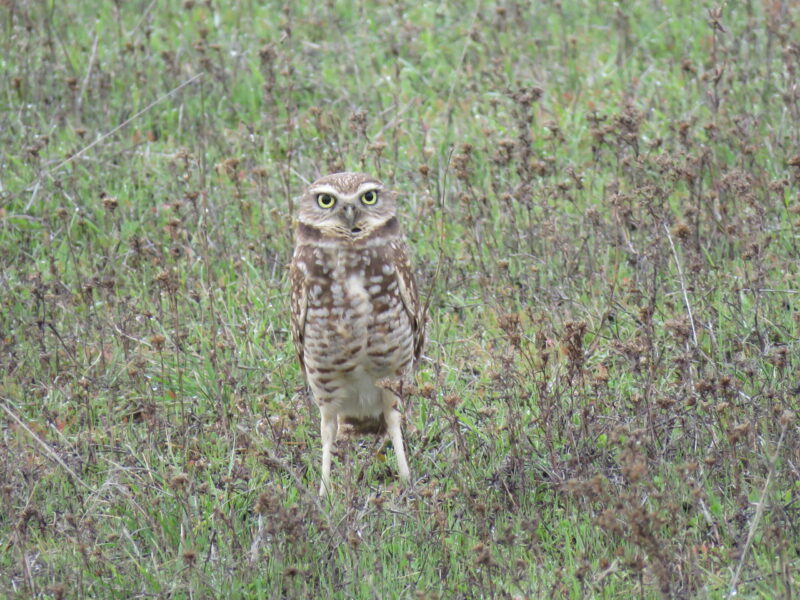
Bay Area Wildlife Guide
Thursday, February 13, 2025 Speaker: Jeff Miller Register HERE for this Speaker Series Jeff Miller will discuss his book ‘Bay Area Wildlife: An Irreverent Guide’, a quirky and entertaining wildlife guide to the greater San Francisco Bay Area, which invites readers to connect with and conserve local species. Featuring over 100 native creatures, from mammals to invertebrates, this informative primer is a treasure map for regional wildlife. Learn about the Bay Area’s furred, feathered, and fork- tongued neighbors—from “screaming death parrots” (aka peregrine falcons) to “bad-ass Looney Tunes velociraptors” (roadrunners). The book’s colorful descriptions cover each species’ natural history and fun facts, tips on when and where to find watchable wildlife, and notes on each animal’s conservation status. Jeff Miller is an amateur naturalist and professional conservationist, and is the founder of the nonprofit Alameda Creek Alliance, serving as its executive director since 1997. He is a senior conservation advocate with the Center for Biological Diversity, spearheading biodiversity protection campaigns throughout the Bay Area and California. Over the last quarter century, he has been involved in conservation efforts for dozens of the most iconic imperiled wildlife species in the Bay Area, from tule elk to steelhead trout.
-
-
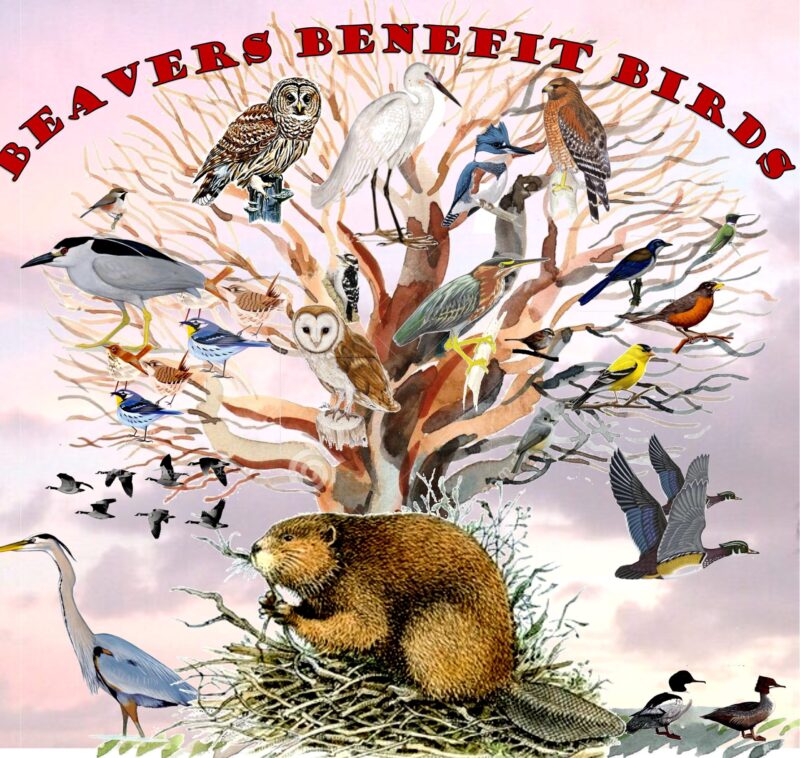
Beavers
Thursday, March 13th 7:00pm - 9:00pm Speaker: Heidi Perryman Register HERE for this Speaker Series Topic: Beavers and their dams create wetlands, store and filter water, augment fish populations, raise the number of migratory and songbirds, and have a dramatic positive impact on biodiversity. Dr. Perryman will discuss how working to help people understand and coexist with this single species will continue to have a beneficial trickle-down impact on both humans and wildlife and improve resilience to ongoing climate changes. Speaker Bio: Heidi Perryman, Ph.D., is a child psychologist who became an accidental beaver advocate when beavers moved into her hometown in 2006. She started the organization “Worth A Dam” to coordinate solutions and educate others about their value in the watershed. She has helped coordinate information and network support with other beaver advocates across North America and Europe, and her website martinezbeavers.org is an important source of information and advocacy for the species.
-
-
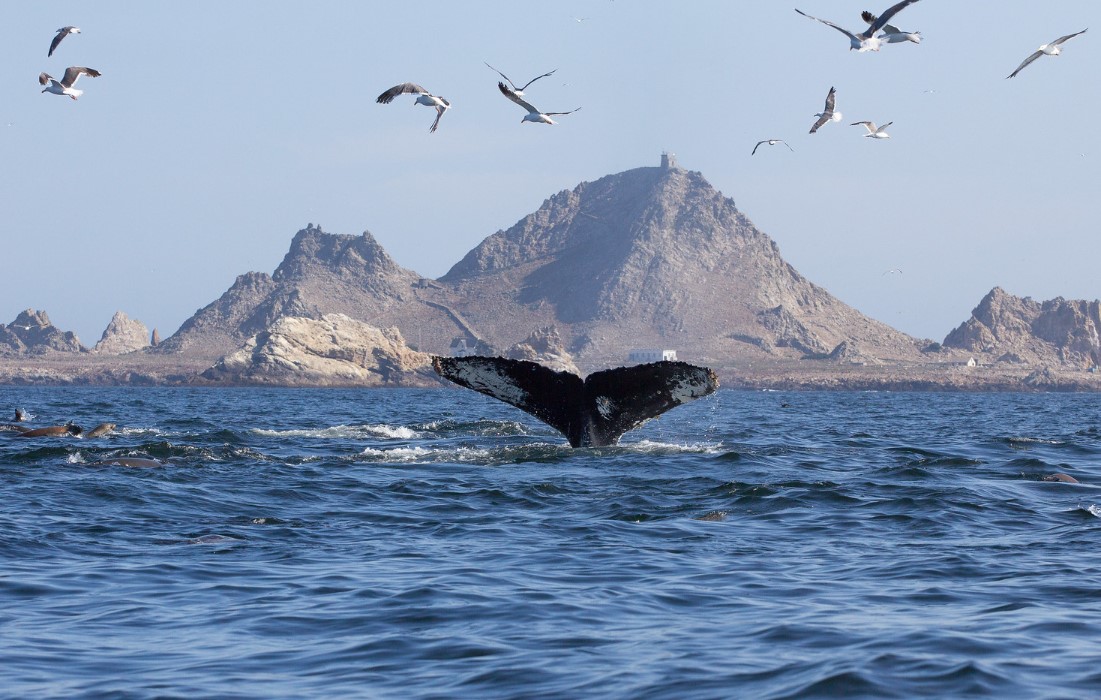
Farallon Islands – A Place Like No Other
Thursday, April 10, 2025 7:00 PM - 9:00 PM Speaker: Pete Warzybok - Point Blue Conservation Science Register HERE for this Speaker Series Topic: Take a deep dive into the Farallon Islands, where Point Blue biologists have spent more than 58 years living and working on the islands. Learn about the 500 thousand seabirds, tens of thousands of pinnipeds, and other wildlife who call these islands home and hear about the threats they face living in an ever-changing environment and some conservation success stories. Speaker Bio: Pete Warzybok is a Principal Scientist and Farallon Program Leader with Point Blue Conservation Science. Pete’s work focuses on the ecology and conservation of marine ecosystems, overseeing research activities at Point Blue’s long-term research station on Southeast Farallon Island. Pete has been with the Farallon Program since 2000, and his current research interests include the study of seabird diet and foraging ecology and the impact of ecosystem variability on breeding success and population dynamics of Farallon seabirds and pinnipeds.
-
-
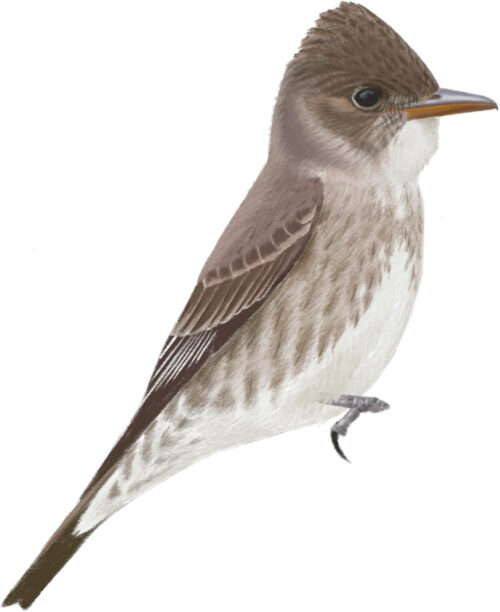
Flycatchers – Identification Demystified
Thursday, May 8, 2025
7:00 PM - 9:00 PM
Speaker: Cin-Ty Lee & Andy Birch, Rice University
Register HERE for this Speaker SeriesTopic:
Flycatchers are a difficult group of birds to identify. Cin-Ty Lee and Andrew Birch will guide you through the basics of flycatcher identification using a holistic approach. In this tutorial, you will learn how to use relative field marks, such as proportional lengths of tail and primaries, plumage contrasts, bill shape and size, and more. We will also discuss the importance of migration timing and vocalizations in identification.Speaker Bio:
Cin-Ty Lee is a geologist. Andy Birch is a professional illustrator. Both Cin-Ty and Andy have had a lifelong passion in tackling challenging bird identifications. Together, they have produced the two volume Princeton Field Guide to North American Flycatchers. They are currently working on volume 3, which will include photographs and more of Andy's illustrations. -
-

Regionally Advancing Living Shorelines Project
Thursday, June 12, 2025 7:00 PM - 9:00 PM Speaker: Marilyn Latta, California State Coastal Conservancy Register HERE for this speaker series. Topic: Marilyn Latta will share information about living shorelines efforts in San Francisco Bay, including design and monitoring data from the San Rafael Living Shorelines Project, a mix of oyster reefs and eelgrass bed plantings in a multi-objective and experimental living shorelines design. Marilyn will share updates on how this and other pilot projects are providing lessons learned and best practices in support of the Regionally Advancing Living Shorelines in San Francisco Bay Project. Speaker Bio: Marilyn Latta is a Project Manager with the California State Coastal Conservancy, a state agency that works to protect and enhance the 1200-mile California coast. She holds a dual degree in Marine Biology/Zoology from Humboldt State University and has worked for multiple education and policy organizations on projects ranging from community-based restoration to planning and implementing large capital projects.
-
-
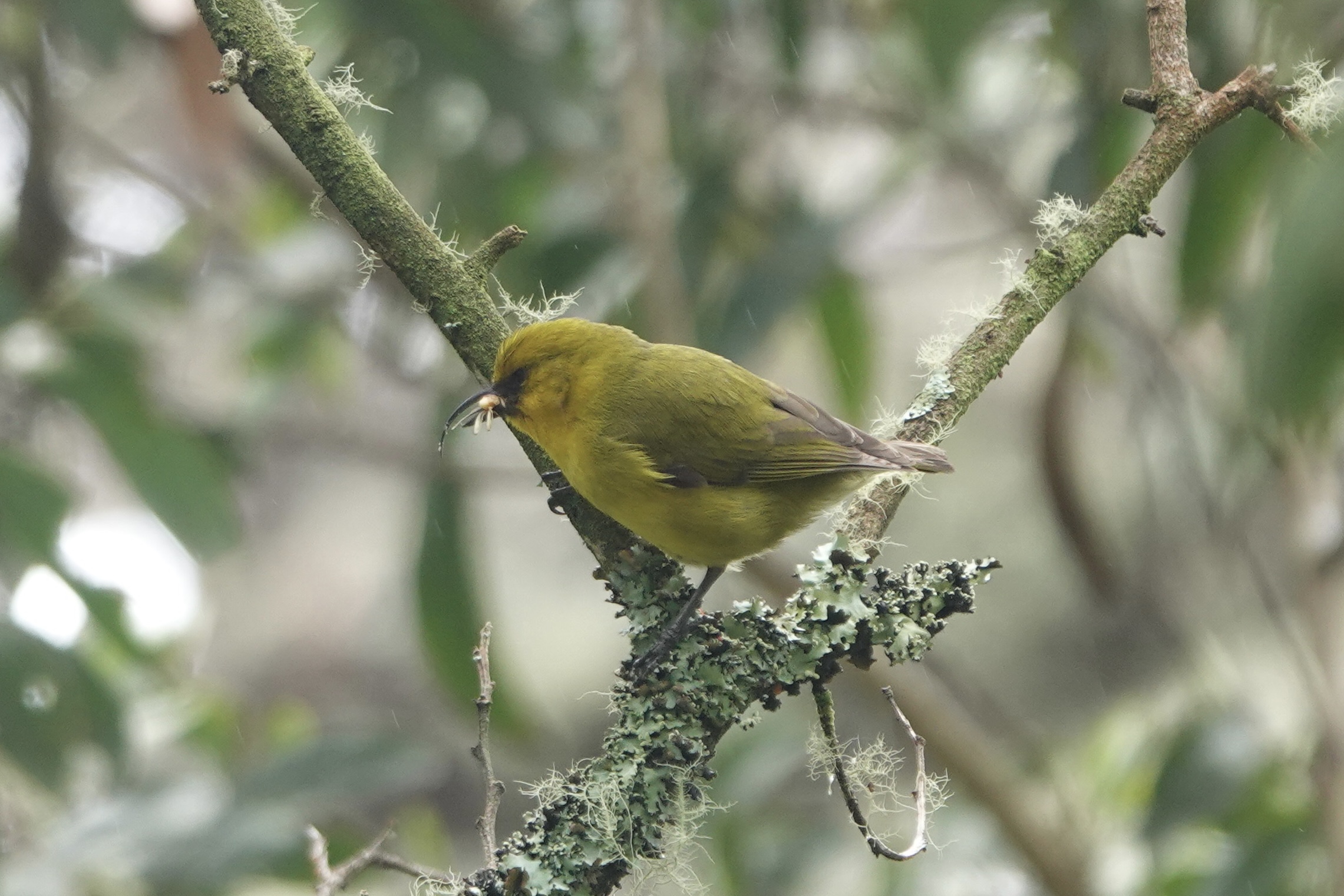
Their Year in Birding
Thursday, September 11, 2025 7:00 PM - 9:00 PM Speakers: Larry Nigro & Molly Donohue Event is free. Register HERE for this speaker series. Topic: In 2024, Larry and Molly planned a transcontinental birding trip from Fairfax to Key West Florida to identify at least 700 species in the American Birding Association (ABA) They added a trip to Alaska, with the chance of identifying a total of 800 species. In their presentation, Larry and Molly will re-live their favorite birding moments of 2024, from the cliffs of the Alaskan Pribilof Islands to the southern tip of the Florida Keys. Their slideshow will cover their search for birds like the Golden-Winged Warbler, Bare-throated Tiger Heron, Black-capped Vireo, Steller's Sea Eagle, Masked Booby, Kirtland's Warbler, Ross's gull, Spectacled Eider, Snowy Owl and so much more. Speaker Bios: Larry Nigro is a retired Marin County school teacher. His birding started with taking students on bird walks. Now retired he has completed the Master Birding Program at California Academy of Sciences, the California Naturalist Program and numerous volunteer birding surveys including Marin Bird Breeding Atlas II. Molly Donahue is an educator and nature enthusiast from West Marin. She has been exploring Marin hills since she was a child and now loves to adventure and bird with her husband, Larry Nigro. She is a certified California Naturalist and participated in the Marin County Bird Breeding Atlas. Sharing, learning, and exploring our natural world is one of her greatest joys.
-
-

Aves Argentinas: From Rescue to Resilience
Thursday, October 9, 2025 7:00 PM – 9:00 PM Speakers: Hernan Casanas and Tamara Zalewski Event is free. Register HERE for this speaker series. Topic: For over a century, Aves Argentinas has been at the forefront of bird and nature conservation in Argentina. As the country’s leading ornithological and conservation NGO and the national partner of BirdLife International, its mission is to protect birds and biodiversity through science, education, advocacy, and collaboration. Hernan and Tamara will discuss how by tending to critically endangered bird species and landscapes they have built large-scale conservation programs. Speaker Bios: Hernan Casanas Hernan is the Executive Director of Aves Argentinas, responsible for the organization’s strategies and the building of strategic alliances, which have been instrumental in the creation of national protected areas. He has a degree in Biological Sciences from the Universidad de Buenos Aires and has written over 100 publications on the environment and ornithology. Tamara Zalewski Tamara grew up in Patagonia, where she learned to love and care for nature from a young age. She graduated from college with a degree in fine arts but went to work to protect nature professionally. She leads partnership development efforts, looking for partners worldwide who are driven to save species and ecosystems.
-
-

Motus Wildlife Tracking System
Topic:
The Motus Wildlife Tracking System ('Motus') is an international collaborative research network that uses automated radio telemetry to study the movements of birds, bats, and insects. Motus, meaning "movement" in Latin, uses coordinated arrays of receiver stations that detect animals carrying miniaturized radio transmitters, enabling researchers to simultaneously track hundreds of individuals at local to hemispheric scales. Developed as a program of Birds Canada, Motus provides key insights into animal movement and behavior that are fundamental to wildlife conservation and habitat management. This presentation will provide an overview of the Motus system and its research applications.
READ MORE -
-

Elephant Seals at Point Reyes: 45 Years and Still Growing Strong
Thursday, December 11 7:00 PM – 9:00 PM Speaker: Dr. Sarah Allen Event is free. Register HERE for this speaker series. Topic: Elephant seals were hunted to extinction at Point Reyes over 150 years ago, but in 1980, the colony recolonized the Point and gradually spread throughout the peninsula. Younger colonies may exhibit novel behaviors such as male altruism and adaptations to changes in climate. Marine protected areas such as national seashores and marine sanctuaries are critical to the recovery and persistence of species and ecosystems. Speaker Bio: Sarah Allen grew up in Marin County where she learned and has a passion for conservation. Sarah received her M.S. and Ph.D. studying marine birds and mammals from UC Berkeley and retired after 26 years as an employee of the National Park Service (NPS), 15 years of which were at Point Reyes National Seashore and then as Science Program Lead for the Pacific Region. She previously worked for 15 years with Point Reyes Bird Observatory. She has authored and co-authored publications, including the UC Press, Marine Mammals of the Pacific Coast: Baja, California, Oregon, Washington, British Columbia. Sarah lives with her husband in Inverness, California.
-
-
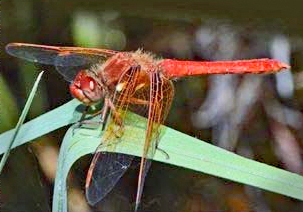
Dragonflies
Thursday, January 8 7:00 - 9:00 PM Speakers: Kathy Biggs and Sandra von Arb Event is free. Register HERE for this speaker series. Topic: Learn about the colorful and interesting Dragonflies and their unique biology with enthusiast Kathy Biggs and field biologist Sandra von Arb. These co-authors of Dragonflies (Anisoptera) of California will teach about the 47 species that occur here, how to identify them and present what the Dragonflies need for survival, where to find them and their migratory habits. Seeing these colorful beauties on your screen will be a delight. Speaker Bios: Kathy Biggs has been a nature lover all her life. When she built a wildlife pond in the backyard in 1996, dragonflies arrived and she found her true passion. Wanting to share her passion, she developed websites for her wildlife ponds, and those matured into her authoring California’s first Dragonfly Guide, Common Dragonflies of California, as well as other publications. She manages the eGroup CalOdes and is a member of several other Odonate groups, and tracks flight data and distribution for California and the greater southwest. Sandra von Arb has been a professional wildlife biologist for 30 years, focusing on sensitive and endangered species in northern California, southern Oregon, and northern Illinois. She is a co-founder of Biodiversity Education and Research Foundation, whose mission is to foster ecological stewardship through science and education.